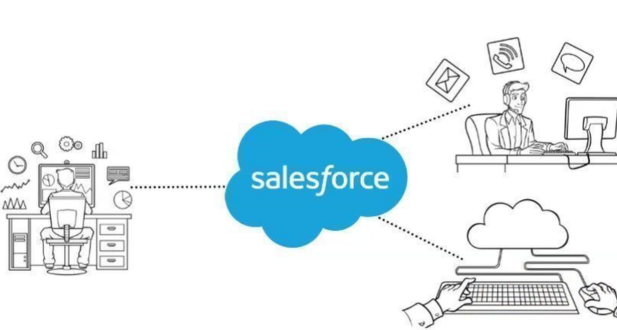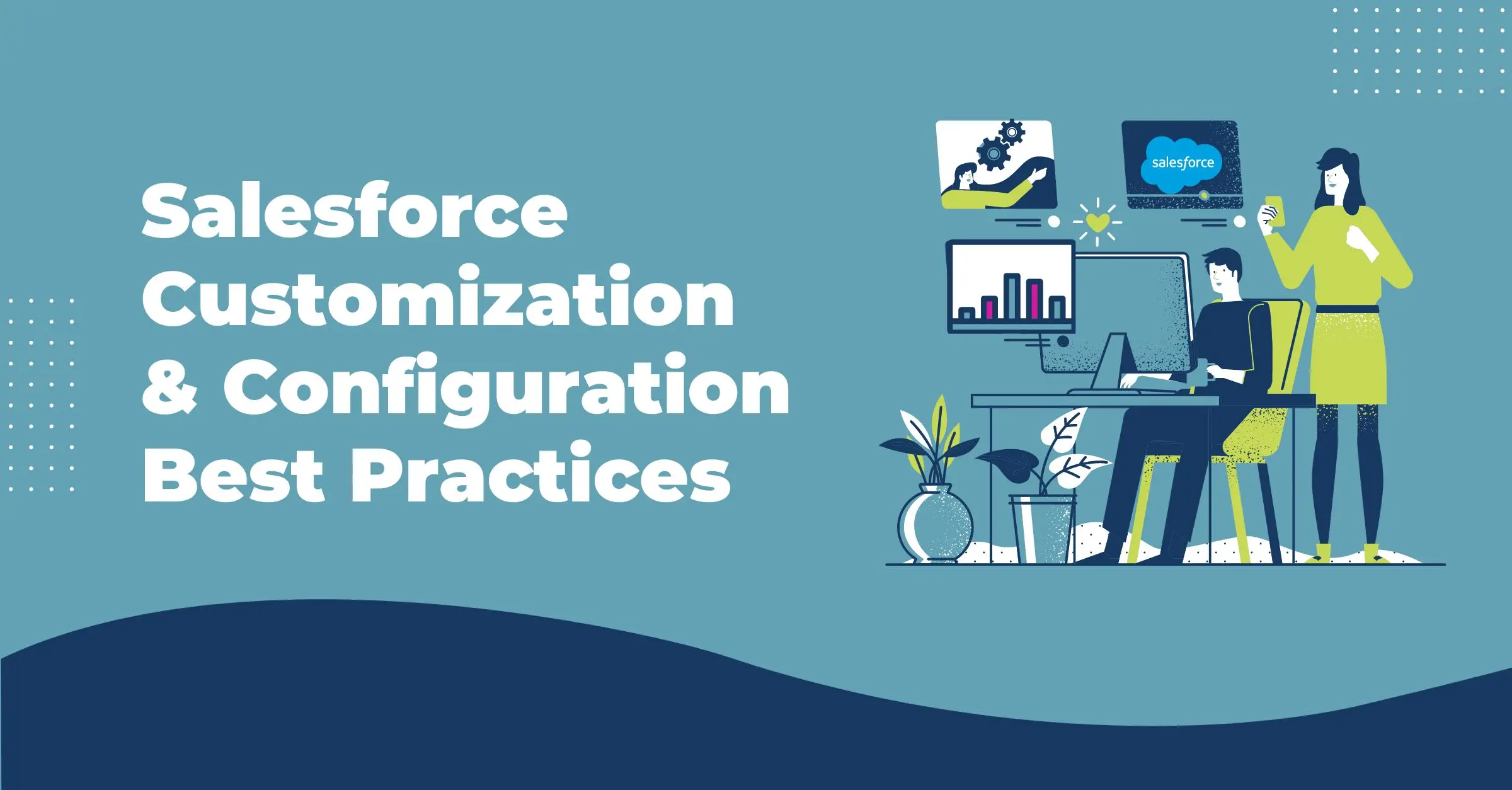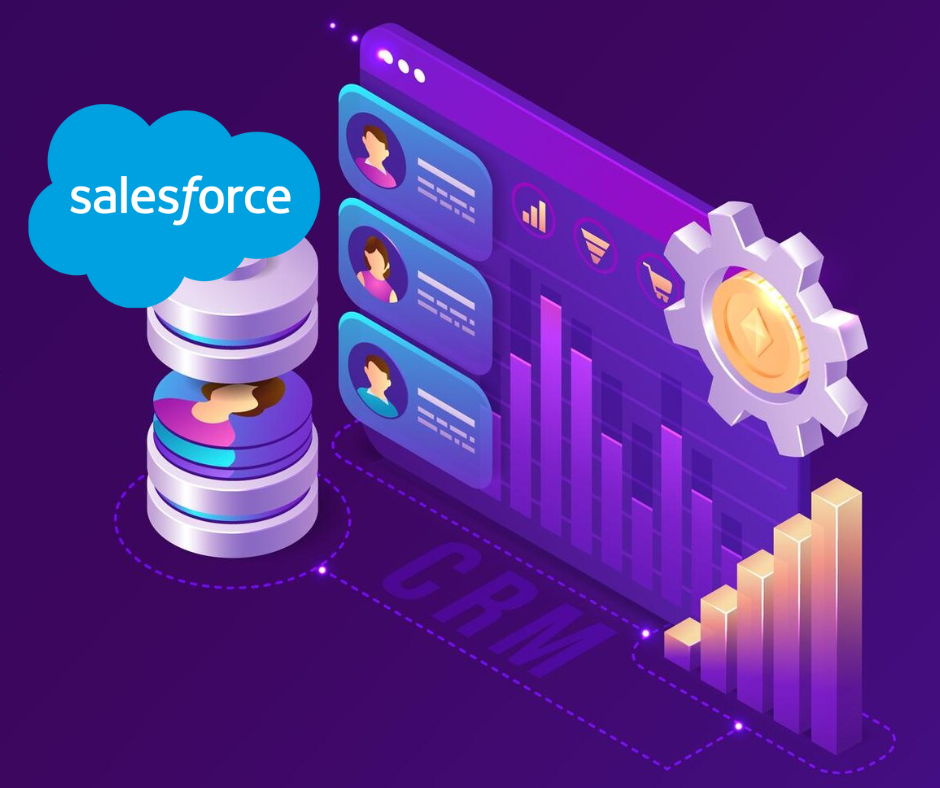Introduction
Brief Overview of Salesforce CRM
Historical Context:
Salesforce CRM, initially founded in 1999, has emerged as a leading customer relationship management (CRM) platform. Over the years, it has played a pivotal role in revolutionizing how businesses manage and interact with their customers. Starting as a cloud-based solution, Salesforce has continually evolved to address the dynamic needs of businesses in an ever-changing technological landscape.
Evolution and Current Market Position:
From its early days as a pioneer in cloud-based CRM, Salesforce has grown into a comprehensive suite of business applications. Its portfolio includes Sales Cloud, Service Cloud, Marketing Cloud, and more. Today, Salesforce is not just a CRM provider but a key player in the broader realm of enterprise solutions. Its market position reflects a commitment to innovation, adaptability, and customer-centricity.
The Need for Customization
Unique Business Requirements:
In the competitive business landscape, organizations face diverse challenges and unique requirements. While Salesforce CRM offers a robust set of standard features, the one-size-fits-all approach may not fully meet the specific needs of every business. This is where customization becomes essential. Tailoring Salesforce to the distinct workflows, processes, and goals of an organization ensures a more efficient and effective use of the CRM platform.
Competitive Edge Through Tailored Solutions:
Businesses are increasingly recognizing the importance of differentiation. Off-the-shelf solutions might not provide the unique functionalities required to stand out in the market. Customizing Salesforce CRM enables organizations to align their digital infrastructure with their strategic goals, gaining a competitive edge. Whether it’s streamlining sales processes, enhancing customer support workflows, or integrating with other enterprise systems, customization empowers businesses to optimize their CRM investment.

Understanding Salesforce CRM
Core Features of Salesforce CRM
- Lead Management:
Lead Capture: Salesforce CRM allows you to capture leads from various sources, such as website forms, social media, and email campaigns.
Lead Qualification: You can categorize and qualify leads based on predefined criteria, helping sales teams prioritize and focus on high-potential prospects.
Lead Assignment: The platform enables automated lead assignment to the appropriate sales representatives, ensuring a timely and personalized follow-up.
- Opportunity Management:
Pipeline Tracking: Salesforce CRM helps in visualizing and managing the sales pipeline, providing insights into the stages of each opportunity.
Sales Forecasting: Through data analysis and historical performance, the system assists in generating accurate sales forecasts, aiding in resource planning and decision-making.
Quote and Contract Management: Users can create and manage quotes and contracts within the system, streamlining the process of closing deals.
- Contact and Account Management:
360-Degree View: Salesforce CRM provides a comprehensive view of customer interactions, allowing users to understand their history, preferences, and any ongoing issues.
Account Hierarchies: The platform supports the creation of account hierarchies, which is particularly useful for managing complex business relationships involving multiple stakeholders.
- Sales Analytics and Reporting:
Customizable Dashboards: Users can create personalized dashboards with key performance indicators (KPIs) and metrics, providing a real-time overview of sales performance.
Reporting Tools: Salesforce CRM offers robust reporting tools for generating various reports and analytics, facilitating data-driven decision-making.
Sales Intelligence: The platform uses analytics to provide insights into customer behavior, helping sales teams tailor their strategies for better engagement.
In addition to these core features, Salesforce CRM also offers a range of other capabilities:
- Workflow Automation: Users can automate repetitive tasks, ensuring efficiency and consistency in sales processes.
- Integration Capabilities: Salesforce CRM integrates seamlessly with other business applications, such as email, marketing automation, and ERP systems, providing a unified view of customer data.
- Mobile Accessibility: The platform is accessible through mobile devices, enabling sales teams to stay connected and productive while on the go.
- Security and Compliance: Salesforce CRM prioritizes data security and compliance with industry standards, providing a secure environment for sensitive customer information.
Advanced Features and Modules
- Marketing Automation:
Definition: Marketing Automation refers to the use of software tools and technologies to automate repetitive marketing tasks, streamline workflows, and measure the effectiveness of marketing campaigns.
Key Features:
- Lead Nurturing: It allows businesses to develop and maintain relationships with leads at various stages of the sales funnel through targeted and personalized communication.
- Campaign Management: Marketers can create, execute, and monitor multi-channel marketing campaigns, including email marketing, social media marketing, and more.
- Analytics and Reporting: Provides in-depth insights into the performance of marketing campaigns, helping businesses make data-driven decisions.
- Workflow Automation: Automates routine tasks, such as sending emails, updating customer records, and assigning leads to sales representatives, saving time and improving efficiency.
- Service Cloud:
Definition: Service Cloud is a customer service and support platform provided by Salesforce. It helps organizations deliver exceptional customer service by providing a unified and intelligent customer support solution.
Key Features:
- Case Management: Allows organizations to efficiently track and resolve customer issues, inquiries, and service requests.
- Knowledge Base: Provides a centralized repository of information to help agents access relevant knowledge and provide quick and accurate responses to customers.
- Omni-Channel Support: Enables support across multiple channels, including email, chat, social media, and phone, ensuring a consistent and seamless customer experience.
- Service Analytics: Offers insights into customer service performance, allowing businesses to identify areas for improvement and optimize their support processes.
- Salesforce Einstein AI:
Definition: Salesforce Einstein is an artificial intelligence (AI) platform integrated into the Salesforce CRM. It brings advanced AI capabilities to help businesses make smarter decisions, automate processes, and enhance customer experiences.
Key Features:
- Predictive Analytics: Uses machine learning algorithms to analyze historical data and predict future outcomes, such as sales forecasts and customer behavior.
- AI-driven Insights: Provides actionable insights and recommendations to sales and marketing teams based on data analysis, improving decision-making.
- Natural Language Processing (NLP): This enables the system to understand and interpret human language, facilitating features like chatbots and voice-activated commands.
- Automated Workflows: Streamlines business processes by automating repetitive tasks and suggesting optimal actions based on AI analysis.
Benefits of Custom Salesforce CRM Solutions

Addressing Specific Business Processes:
Streamlining Sales Processes:
Custom Salesforce CRM solutions can be tailored to fit the unique sales processes of a business. This may include creating custom sales stages, automating tasks, and providing relevant insights to sales teams, ultimately increasing efficiency.
Enhancing Customer Service Workflows:
A customized CRM can optimize customer service workflows by integrating communication channels, automating case management, and providing a unified view of customer interactions. This results in quicker issue resolution and improved customer satisfaction.
Integrating Marketing and Sales Efforts:
Custom solutions allow for seamless integration between marketing and sales activities. This integration ensures a cohesive approach to lead generation, nurturing, and conversion, leading to better alignment between marketing and sales teams.
Improved User Adoption:
Tailored User Interfaces:
Custom Salesforce CRM solutions can offer user interfaces that are specifically designed to match the organization’s branding and user preferences. A visually appealing and user-friendly interface enhances user experience and encourages higher adoption rates among employees.
Intuitive Workflows:
By aligning the CRM with the organization’s workflow, custom solutions make it easier for users to navigate and perform tasks. Intuitive workflows reduce the learning curve for employees, leading to quicker adoption and increased productivity.
Scalability and Future-Proofing:
Adapting to Growth:
Custom Salesforce CRM solutions can be designed with scalability in mind. As the business expands, the CRM can evolve to accommodate increased data, users, and processes. This ensures that the CRM system remains effective and relevant even as the organization grows.
Incorporating Emerging Technologies:
Custom solutions can easily integrate with emerging technologies such as artificial intelligence, machine learning, or IoT. This adaptability allows businesses to stay ahead of the curve and take advantage of new technologies to enhance their CRM capabilities and gain a competitive edge.
The benefits of custom Salesforce CRM solutions are rooted in their ability to align with and enhance specific business processes, improve user adoption through tailored interfaces and workflows, and provide scalability and future-proofing by adapting to growth and incorporating emerging technologies.
Challenges and Considerations
Development and Implementation Challenges:
Integration with Existing Systems:
This involves ensuring that the new system seamlessly integrates with the existing infrastructure. Compatibility issues, data transfer mechanisms, and synchronization with other systems must be carefully addressed to prevent disruptions and data inconsistencies.
Data Migration and Cleanup:
Transferring data from old systems to the new one can be complex. Inconsistent data formats, duplicates, and outdated information need to be identified and rectified. A well-thought-out data migration strategy is essential to maintain data accuracy and integrity.
Cost Implications:
Initial Investment:
The upfront costs associated with acquiring and implementing the new system. This includes software licenses, hardware, development resources, and any other initial expenses. Accurate cost estimation is crucial to prevent budget overruns.
Ongoing Maintenance:
Beyond the initial investment, there are ongoing costs for system maintenance, updates, and support. Regular software updates, hardware maintenance, and troubleshooting should be factored into the budget to ensure the system’s long-term viability.
User Training and Change Management:
Overcoming Resistance:
Resistance to change is a common challenge during system implementations. Employees may be accustomed to existing processes and reluctant to adopt new technologies. Strategies such as communication, involvement in the decision-making process, and showcasing the benefits of the new system can help overcome resistance.
Maximizing User Proficiency:
Training programs are crucial to ensure that users understand how to effectively use the new system. This includes not only technical training but also guidance on how the new system will improve their workflow and contribute to their daily tasks. Continuous support and resources for ongoing learning should be provided.
The successful development and implementation of a new system require careful consideration of integration challenges, meticulous data management, realistic budgeting for both initial and ongoing costs, and a comprehensive approach to training and managing the change within the user base. Addressing these challenges proactively can enhance the chances of a smooth and successful system implementation.
Best Practices for Custom Salesforce CRM Development

Thorough Requirements Gathering:
Stakeholder Involvement: Engage key stakeholders from different departments to understand their unique needs and perspectives. This involvement ensures that the CRM system aligns with the organization’s overarching goals.
Understanding Workflows and Pain Points: Identify existing workflows and pain points in the current processes. This understanding allows for the development of solutions that streamline operations and address specific challenges.
Agile Development Methodology:
Iterative Prototyping: Adopt an iterative approach to development by creating prototypes at different stages. This allows stakeholders to visualize the CRM system’s progress, provide feedback, and make necessary adjustments early in the development process.
Continuous Feedback Loops: Maintain open lines of communication with stakeholders throughout the development lifecycle. Regular feedback loops help in addressing any evolving requirements or concerns promptly, ensuring the final product meets expectations.
Robust Testing and Quality Assurance:
Ensuring Data Integrity: Prioritize data integrity by implementing thorough testing procedures. Validate data migration processes, data storage, and data retrieval to ensure that information is accurate and reliable.
User Acceptance Testing: Conduct extensive user acceptance testing to ensure that the CRM system meets end-users’ needs and is user-friendly. This phase allows for the identification and resolution of any usability issues before deployment.
Documentation and Knowledge Transfer:
Comprehensive Documentation: Document every aspect of the custom Salesforce CRM development, including requirements, design, code, and testing procedures. Comprehensive documentation facilitates future enhancements, maintenance, and troubleshooting.
Training Programs for End Users: Develop training programs to empower end-users with the skills and knowledge needed to effectively use the CRM system. Training ensures a smooth transition to the new system and maximizes user adoption.
Real-world Case Studies
Real-world case studies provide in-depth insights into practical applications of a particular concept or solution. In the context you’ve provided, the case studies can be categorized into successful implementations and lessons learned from failures.
Successful Implementations:
Industry-specific Customizations:
This aspect delves into how a solution or strategy was customized to meet the specific needs and challenges of a particular industry. For example, if a company implemented a new technology, how was it tailored to address the unique requirements of its industry? This can include considerations for regulations, market demands, or industry-specific processes.
Notable ROI Achievements:
Return on Investment (ROI) is a crucial metric in assessing the success of an implementation. Case studies should highlight tangible benefits achieved by organizations, such as increased revenue, cost savings, improved efficiency, or enhanced customer satisfaction. It’s essential to quantify the impact of the solution on the business’s bottom line.
Lessons Learned from Failures:
Identifying Pitfalls:
This section explores the challenges and pitfalls faced during the implementation process. It could include issues related to project management, communication breakdowns, technological limitations, or unforeseen external factors. Identifying these pitfalls helps other organizations anticipate potential challenges in similar projects.
Mitigating Risks:
Based on the failures and challenges faced, this part of the case study focuses on the strategies employed to mitigate risks. It could involve revised project management approaches, improved communication protocols, or contingency plans. Understanding how organizations bounce back from setbacks is valuable for others aiming to navigate similar challenges.
Real-world case studies serve as practical guides for businesses and professionals. Successful implementations offer inspiration and proven strategies, while lessons learned from failures provide valuable insights to prevent others from making the same mistakes. This approach fosters a culture of continuous improvement and shared knowledge within industries.
Future Trends in Custom Salesforce CRM Solutions

Integration with Emerging Technologies
Artificial Intelligence (AI) and Machine Learning (ML):
Predictive Analytics: Salesforce CRM solutions will increasingly leverage AI and ML for predictive analytics. This involves using historical data to predict future trends, customer behavior, and sales patterns, enabling businesses to make more informed decisions.
Automated Insights: Integration of AI for automated insights generation, helping businesses identify opportunities, detect anomalies, and optimize processes.
Internet of Things (IoT):
Connected Devices Integration: Salesforce CRM systems will be designed to seamlessly integrate with IoT devices, allowing businesses to collect and analyze data from various sources. This can include information from smart devices, sensors, and other IoT-enabled equipment.
Real-time Monitoring: Utilizing IoT for real-time monitoring of customer interactions, product usage, and other relevant data points, enhancing the overall customer experience.
Focus on User Experience
Personalized Dashboards:
Customization Capabilities: Future Salesforce CRM solutions will offer advanced customization features, allowing users to tailor their dashboards according to their specific needs and preferences.
Drag-and-Drop Interface: Enhanced user interfaces with intuitive, drag-and-drop functionalities for easy dashboard creation and modification.
Mobile Responsiveness:
Cross-Platform Compatibility: Salesforce CRM platforms will prioritize seamless user experiences across various devices, ensuring accessibility and functionality on both desktop and mobile devices.
Offline Functionality: Improved offline capabilities for mobile users, enabling them to access and update crucial CRM data even when not connected to the internet.
Continued Emphasis on Security
Data Encryption:
End-to-End Encryption: Salesforce CRM solutions will continue to enhance data security through end-to-end encryption, ensuring that sensitive information remains protected throughout the entire data lifecycle.
Multi-Factor Authentication: Implementation of advanced authentication methods to add an extra layer of security, preventing unauthorized access to CRM systems.
Compliance with Regulatory Standards:
Global Data Protection Regulations: Continued adherence to evolving data protection regulations and privacy standards, such as GDPR, CCPA, or any other regional compliance requirements.
Audit Trails and Compliance Reporting: Robust features for maintaining audit trails and generating compliance reports to demonstrate adherence to industry-specific regulations.
Conclusion
In conclusion, customizing Salesforce CRM solutions has become a strategic imperative for businesses aiming to stay ahead in a competitive landscape. By tailoring the CRM to align with specific business processes and industry requirements, organizations can unlock unparalleled benefits in terms of user adoption, data management, scalability, and overall operational efficiency. While challenges exist, careful planning, adherence to best practices, and staying abreast of emerging trends can pave the way for successful custom Salesforce CRM implementations that drive lasting business success.
Custom solutions are chosen when businesses have unique processes or requirements that cannot be met by out-of-the-box Salesforce features. Customization allows organizations to optimize workflows, enhance user experience, and integrate with other systems in a way that aligns with their specific business goals.
Data migration involves transferring existing data into the new custom Salesforce CRM solution. It typically includes extracting data from legacy systems, transforming it to fit Salesforce data models, and loading it into the new system. This process is carefully planned and executed to ensure data accuracy and integrity.
Yes, custom Salesforce CRM solutions can be seamlessly integrated with third-party applications using APIs (Application Programming Interfaces) or middleware. This integration enables the CRM system to exchange data with other tools and platforms, providing a unified and efficient ecosystem.
User training is a crucial aspect of any CRM implementation. Training plans are typically tailored to the specific features and processes implemented in the custom solution. Training sessions, documentation, and ongoing support are provided to ensure that users are proficient in using the customized CRM system.
Security is a top priority in custom Salesforce CRM solutions. The platform provides robust security features, including role-based access control, data encryption, and audit trails. Additionally, custom solutions can implement additional security measures based on the organization’s specific compliance requirements.








